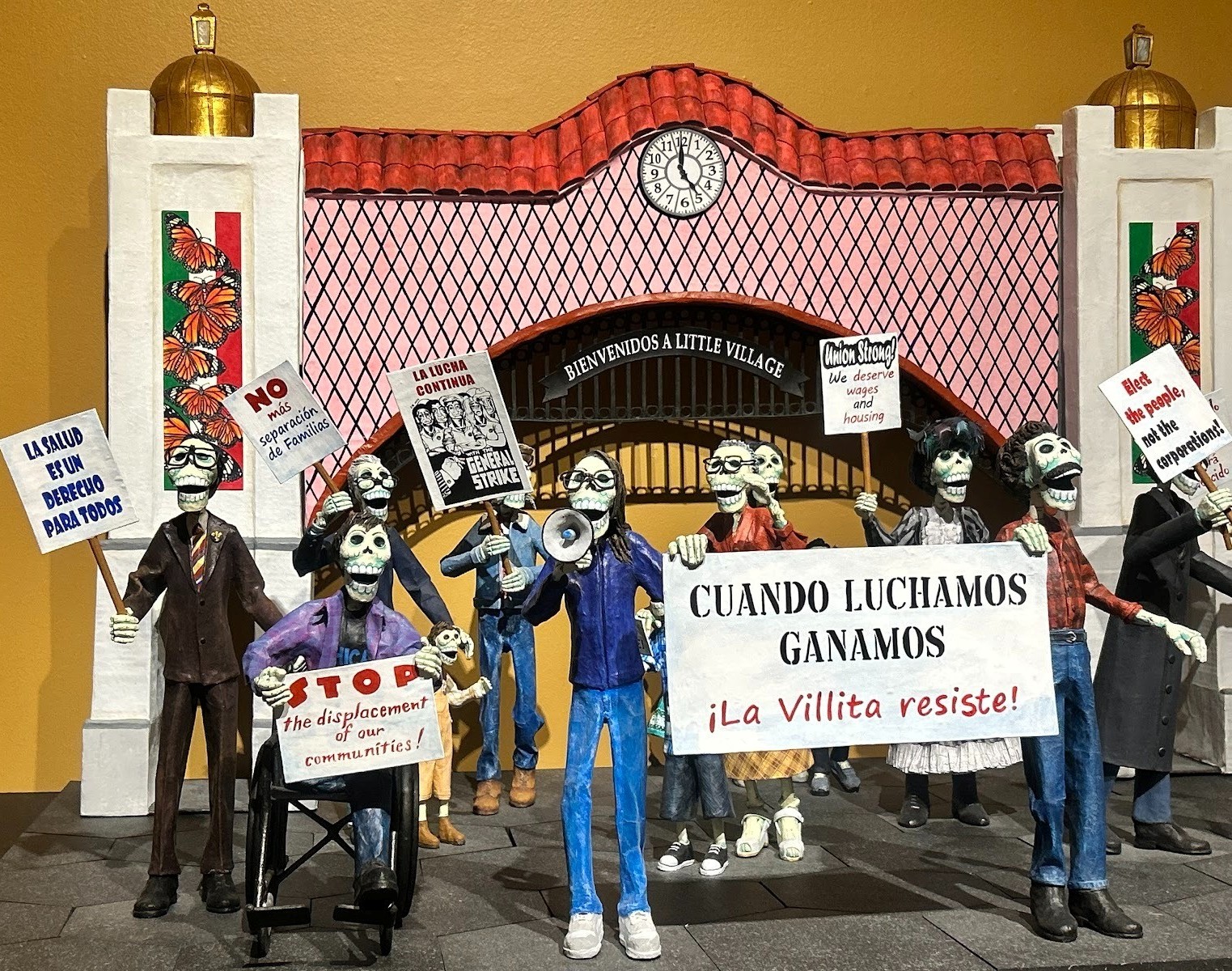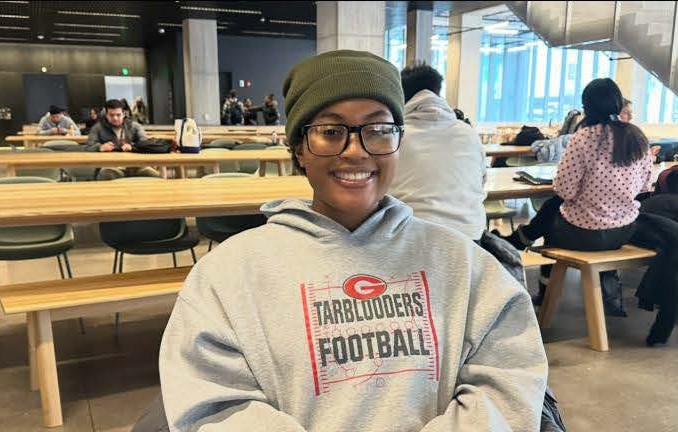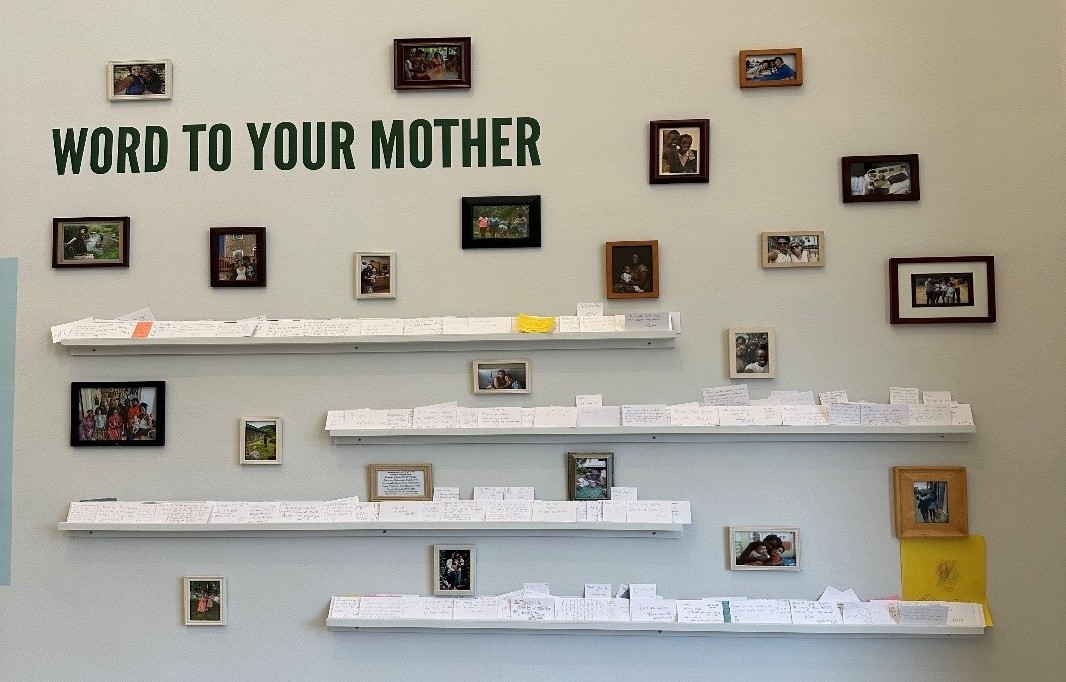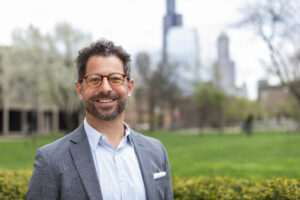Story by Nadia Beidas
An Iraq war veteran said the military paid her $100 on two occasions to wear her uniform to her high school and recruit students to join the military.
Patricia McCann told members of the Board of Education for Chicago Public Schools during its monthly meeting that she was not the only one paid to recruit other students, as it was common practice when she was in school. She asked the board to look into the policy of recruiters accessing public schools.
Paying students to join the military is legal, said McCann, who is a member of Iraq Veterans Against the War. McCann said she was recruited to join the Illinois National Guard at age17 during her physical education class at Carbondale Community High School.
McCann enlisted in 2000, went to Iraq in July 2003 and came home May 2004 she said.
Paying people to recruit is “very dirty military,” said Cesar Ruvalcaba, anti-recruitment specialist for American Friends Service Committee and member of Vietnam Veterans Against the War, a group of veterans who oppose the War in Iraq.
McCann said she wished she’d gotten more information before she enlisted. She cited statistics on rape, abuse and post traumatic stress disorder in times of war as examples.
“I wish I had been told one in three women get raped,” said McCann, who said she was not sexually assaulted but said she experienced sexual discrimination.
In one instance, McCann recalled, a criminal investigation department agent, who conducts investigations for the Army, stumbled drunk into the women’s quarters, which are separate from the men’s quarters, trying to find a woman who would have sexual relations with him. Luckily, she said, the women were able to shoo him away.
Another negative experience for her was the treatment of injured soldiers, McCann said.
Soldiers with broken bones were denied care and had to wait long periods of time, before being treated, she said.
After serving from 2000 to 2006, part of the time in Iraq, she returned with post traumatic stress disorder, McCann said.
“It took me six months after coming here [to realize that I am] not going to be killed,” McCann said. “People are not going to try to shoot [me] in the street.”
Young people today should not have to go through what she did, said McCann.
The access schools gives the military should be given to groups that give factual information, McCann said. Anti-recruitment groups tell students about alternative careers, but their school access is not the same as the military, said McCann, and students should hear more than “propaganda by the military.”
Both recruiters and anti-recruitment groups should be given a certain space in the school where they can talk to students, and not go outside that space, said McCann, and they should not go into students’ classrooms and lunch rooms.
But an alderman and a community service leader said the military should continue to have the same access because the military gives great opportunities. It is important to “rid our schools of gangs, drugs, and violence,” and the military is a good way to do so, said Chicago Ald. James Balcer (11th).
Balcer, a Vietnam veteran, said his life was made better because of the Marines.
A lawyer who served in the military also supports recruiters’ access to schools. David Askew, director of Pro Bono and Community Service, which offers legal services to low-income individuals. Askew also ran unsuccessfully for the 2nd Ward aldermanic seat last year.
When young people come into the military they are able to “identify issues and problems” and have better abilities in “how to solve problems,” Askew said.
The military teaches organizational skills, task accomplishment and different ways of getting things done, which is important to people 18 and 19 years old, Askew said. Also, in the Air Force or Navy, young people get to see the world, places like Singapore and Europe, he said.
Signing up with recruiters enables young people to figure out “what is going to be my place in society,” said Askew.
If students are getting paid once they join the military to recruit other students, it is not different from any other job because they are being paid to do a service, said Askew. Students may be happy with their decision and want to share it with other students, he said. McCann also recruited of her own will, said Askew.
“We don’t pay students to go and recruit,” said Tim Turpin, chief of public affairs for the U.S. army in northern Illinois.
College is not for everybody, just as the military is not for everyone, said Askew. Other organizations should offer opportunities to young people, he said.
“Give them [students] alternatives,” Askew said. “Don’t come up here and just bash, bash, bash.”
CPS’ general counsel, Patrick Rocks, said a series of meetings between the board and individuals on both sides will be held.
The board will be presented the Chicago Public School’s recommendations for military and post-secondary access in schools, an equal access policy for both, said Mike Vaughn, press secretary for Chicago Public Schools.
Rocks asked the board to hold off making a decision until the Dec. 19 meeting, when the board will vote on this issue, said Rufus Williams, board president.
Categories:
Global Public Schools & Education
Tags:
american friends service committee chicago public schools iraq military recruitment vietnam veterans against the war






Be First to Comment